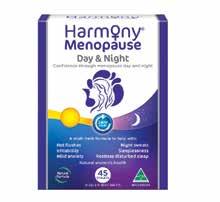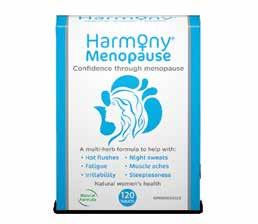
10 minute read
Is this all there is?
Life used to be straightforward. One day followed another. Then something changed. My heart opened.
BY LYNDA CASEY
Advertisement
Most people I meet encounter are either on some sort of spiritual journey, or can talk all day about anything, and nothing remotely connected to spirituality is ever mentioned. For some who have never slid up against the idea of spirituality, much less a spiritual journey, there is often a belief that it must be either about traditional religion, or a strange cult— one extreme or the other.
Many of us of a certain age have our roots tied to conventional religion. While it is certainly possible to maintain those roots and still connect to a spiritual journey, some have long since left “the church,” as we might remember it, and have entered another realm of connecting to Divinity, or Essence, or a Higher Truth.
So you may wonder, if not already on such a path, how did we all get here?
For me, it was a beautiful summer day 20 years ago and I was gazing out my living-room window. I am fortunate to live at the end of a cul-de-sac surrounded by forest and other homes mostly secluded by trees. In that moment I had no precise angst about anything in particular, but I recall having this thought enter my mind: “Is this all there is?” While that line may have been made famous by Peggy Lee in 1969 from a song of the same name, I wasn’t thinking about Peggy or those lyrics.
However, everything I had ever sensed or known up to that instant seemed to encompass a feeling of finality. I remember thinking, surely this can’t be all there is to life!
Here is what I was not aware of in that mystical moment. A light, shining through a sliver of darkness, was prompting me to ask myself that question. Realizing that fact came a great deal of time later. However, in that cosmic juncture, things were already lining up.
Gary Zukav, New York Times bestselling author of Seat Of The Soul, was a regular on Oprah. While I didn’t deeply comprehend all of what he presented, his words were activating something, keeping me glued to his conversation.
That September I was on a flight to Connecticut to be with Gary for a weekend retreat. This was the first of many such excursions that were to follow over the years.

Not everyone enters a spiritual journey by asking themselves, or what they perceive to be themselves, the question I did, although variations on that theme happen more than one might imagine. People can also enter a spiritual journey through an event like trauma, a near-death experience, or a sudden reversal of fortune.
In a culture and society that is dominated by “the mind,” a spiritual journey is not external, but internal. The modern climate where almost everyone suffers from some level of anxiety affords us a way to investigate who we are beyond our identity, persona, labels, ideas, stories and beliefs.
We all recognize there is an enormous need for change, but to paraphrase Einstein, “the mind that creates the problem cannot solve it.”
Real change can only come via the Heart, and to open that door fully we require a spiritual key!
Lynda Casey holds a master’s degree in Wisdom Studies. A cultural evolutionary, public speaker and playwright, she is creating a theatrical production called Feminine Rising. You can contact Lynda online to tell her how you became involved in a Spiritual Journey or to share your questions or comments: lyndacasey@boldbutterflyproductions.com
THE MENOPAUSE-BRAIN CONNECTION
Menopause is a natural phase of a woman’s life. It can trigger symptoms like hot flashes and anxiety—and may contribute to Alzheimer’s. At the same time, there are many natural ways to support cognitive health.
BY SAMANDA VERDUN
Many of us know a family member or friend who has a connection to Alzheimer’s disease. This degenerative brain disease, the most common form of dementia, is on the rise. In 2018, neuroscientist Lisa Mosconi stated that within the next three minutes, three people in the United States will develop Alzheimer’s and two of them will be women.
We now know that the actual disease process in the Alzheimer’s patient has been developing over years to decades before the diagnosis. Why are women more likely to have Alzheimer’s? And what preventative measures can we take?
Alzheimer’s disease is characterized by the brains accumulation of amyloid plaques, tau tangles and inflammation. This results in a wide array of disabling and often frightening symptoms for the individual, family members and caregivers. It has long been thought of as a disease of old age. Menopause, on average, occurs around age 45 to 50. Centred on fertility, it is defined as the time when there have been no menstrual periods for 12 consecutive months. Natural menopause, as opposed to a hysterectomy or oophorectomy, occurs when the ovaries naturally begin decreasing their production of estrogen and progesterone.
Women’s brains age differently from those of men.
Many of the symptoms of menopause -- hot flashes, night sweats, insomnia, memory lapses, depression, and anxiety-- don’t start in the ovaries. These are neurological symptoms and they start in the brain, which is in constant conversation with the whole body. This includes the neuroendocrine system—the brain-ovary connection. Changes in levels of hormones like estrogen impact not only the reproductive system but also brain function. Estrogen is connected to cellular energy production in the brain. During menopause, as hormone levels fluctuate and estrogen levels decline, neurons start slowing down and also age faster.
Research conducted by Lisa Mosconi shows a correlation between estrogen decline and the formation of amyloid plaques—a hallmark of Alzheimer’s disease. Although not all women develop plaques to the same degree, nor do all women with plaques develop dementia, it is a risk factor. Midlife for women plays a key role in how their brains age differently from those of men.
For women, the effects are more prevalent in particular brain regions:
HYPOTHALAMUS In charge of regulating body temperature. When estrogen doesn’t activate the hypothalamus correctly, the
brain cannot regulate body temperature properly—i.e. hot flashes.
BRAIN STEM In charge of the sleep and wake cycle. When estrogen doesn’t activate the brain stem correctly, we have trouble sleeping.
AMYGDALA The emotional centre of the brain, which is close to the hippocampus, the memory centre of the brain. When estrogen levels ebb in these regions we start getting mood swings and also forget things.
Alzheimer’s has compound causes, including age, genetics, high blood pressure, changes in hormone levels, changes in blood sugar levels and aspects of lifestyle. As a Naturopathic Doctor, I always encourage lifestyle factors such as healthy eating habits, enhanced sleep quality, exercise, and stress support:
DIET The Mediterranean Diet stands out from all other diets in support of women’s health. It offers a lowered risk of cognitive decline, depression, heart disease and menopause symptoms like hot flashes. It is rich in safe plant-based estrogens, called phytoestrogens, which act like mild estrogens in the body. Some of the foods in this diet include flax seeds, sesame seeds, almonds, legumes, dried apricots, leafy greens, garlic, fish, olive oil and a number of fruits.
SLEEP Sleep, averaging eight hours per night, is needed for cognitive health, among many other health concerns. Research suggests that getting too few hours of sleep (less than six hours per night) may increase the risk of Alzheimer’s disease and dementia. Start a bedtime routine that includes no screen time at least one hour before bed, keep your bedroom cool and no food intake at least one to two hours before sleep. There are many natural sleep remedies that your naturopath can recommend to support healthy sleep quality.
EXERCISE It is vital at any age to remain active. Exercise can reduce risk factors for many diseases, including cognitive decline. As we age, exercise support should be as important as financial support.
STRESS High stress levels can literally rob your body of the building blocks to create essential end products such as hormones. We all know stress can lead to many health concerns. Ask for help. Realize your limits: it’s ok to say no (saying yes to everyone can be exhausting). Invest time in social connection. Communicate with your healthcare provider about stress support.
Although Hormone Replacement Therapy (HRT) is a possible solution for relieving menopausal symptoms, it might not be the right solution for all women. There are estrogen receptors located throughout the brain, especially in the hippocampus and other brain areas involved in learning and memory. Currently, HRT is not recommended for the prevention of dementia. More research needs to be conducted to test the efficacy and safety of HRT for cognitive support.
These are just a few of the ways to support cognitive health. There are many more. Preventative testing for women in midlife would provide a window of opportunity to detect early signs of Alzheimer’s disease. Menopause does not cause Alzheimer’s, but it could accelerate the process for women who are predisposed to the disease.
Adding in the preventative measures described above, in addition to working with your healthcare provider, can improve the quality of life of those affected by the disease. Social connection and support for caregivers, spouses and children is important as well. It can be difficult to ask for help, but there is support out there. Please don’t feel you are alone in caring for your loved one.
Dr. Samanda Verdun BSc., ND., has been on a journey with Naturopathic Medicine for over 10 years, providing care to those in her community. Her focus is to find and treat the root cause, remove obstacles to healing, and guide patients on their own wellness path.
FROM THE EXPERTS
For more detailed information, check out the following references:
Chen, JC., Espeland MA., Brunner RL., et al. (2016). Sleep duration, cognitive decline and dementia risk in older women. Alzheimers Dement 12, 21-33.
De Almondes KM., Costa MV., MalloyDiniz LF., et al. (2016). Insomnia and risk of dementia in older adults. Journal Psiatr Res 77, 109-115.
Maki PM., Hendersen VW (2012). Hormone therapy, dementia, and cognition: the womens health inititive ten years on. Climacteric 15, 256-262.
Mosconi L., et al. (2017). Altered brain bioenergetics in the perimenopause to menopause transition – implications for the increased alzheimers risk in females. PloSONE 12(10).
Mosconi L., et al. Increased alzheimers risk during menopause transition: 3 years longitudinal brain imaging study. PloS Dec 12:13 (12).
Shumater SA., Legault C., Rapp SR., et al. (2003). Estrogen plus progesterone and the incidence of dementia in mild cognitive impairment in postmenopausal women. JAMA, vol 289, 2651-2662
Confidence through Menopause
Menopause isn’t just hot flushes and night sweats. It’s a complete life change and a process for both the mind and body to adjust to.
Some women have admitted to feeling like they were losing a part of their womanhood, femininity and selves.
To best support women through this process, it’s necessary to support the whole body and not just the heat within the body. There are a broad range of symptoms women may tackle, such as, mood fluctuation, irritability, brain fog, joint aches ” and dryness, and of course, hot flushes and night sweats. I just love Harmony! I have really noticed a positive difference, I finally feel like me again. Harmony Menopause helped me with the transition ” into menopause, I felt so much more myself. Thank you Harmony!
Ange Shaw Harmony Customer

Rehmannia Glutinosa is the primary herb


Takeharmony.ca
Many women, like Ange, have had great success with Harmony Menopause.
Harmony Menopause is free from Black Cohosh, wheat, dairy, gluten, artificial flavours and colours.
100% natural ingredients & naturally derived excipients
A combination of 6 active eastern herbs to treat more than 21 symptoms associated with menopause
Calms the mind & body for better sleep & mental clarity
Liver support
Added Vitamin D3 and Magnesium for joint support
A tonic for the adrenals & kidneys
Relieves hot flushes & night sweats










